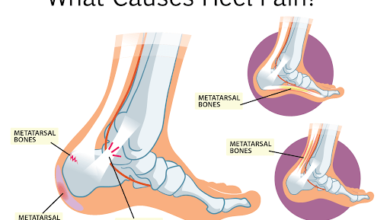8 Signs That You Need Dental Implants

Introduction
Dental health is crucial for overall well-being. Missing or damaged teeth can lead to oral health complications, affecting speech, digestion, and self-confidence. If you experience persistent dental problems, you may need dental implants. This article will explore the 8 signs that you need dental implants and why they might be the best solution for your oral health.
What Are Dental Implants?
Dental implants are artificial tooth roots made from titanium or other biocompatible materials. They provide a stable foundation for replacement teeth and help maintain jawbone health. Unlike dentures or bridges, implants are permanent, offering a natural look and feel.
8 Signs That You Need Dental Implants
1. Missing One or More Teeth
One of the most obvious signs that you need dental implants is missing teeth. Gaps in your smile can affect your ability to chew properly and may cause surrounding teeth to shift, leading to further dental problems.
2. Difficulty Chewing or Eating
If you struggle to chew food due to missing or damaged teeth, dental implants can restore your ability to eat comfortably. Poor chewing can lead to digestive issues and inadequate nutrition, impacting overall health.
3. Loose or Uncomfortable Dentures
Many people with traditional dentures experience discomfort or instability. If your dentures frequently slip or cause irritation, it could be time to consider dental implants. Implants provide a secure, fixed alternative to removable dentures.
4. Bone Loss in the Jaw
Jawbone deterioration is a common issue when teeth are missing for a long time. Since dental implants fuse with the bone, they help prevent further bone loss, maintaining facial structure and oral health.
5. Sunken Facial Appearance
Missing teeth and bone loss can cause facial sagging, making you look older. Dental implants help maintain your facial structure by supporting the jawbone and preventing further deterioration.
6. Chronic Dental Infections or Decay
If you suffer from repeated dental infections or severe tooth decay, extraction might be necessary. Replacing infected teeth with dental implants can prevent further infections and improve overall oral health.
7. Shifting or Misaligned Teeth
When a tooth is missing, neighboring teeth may shift into the empty space, leading to misalignment. Dental implants help keep your teeth properly aligned, preventing bite problems and jaw pain.
8. Self-Conscious About Your Smile
If you feel embarrassed about missing or damaged teeth, dental implants can restore your confidence. Implants provide a natural-looking solution, allowing you to smile freely without worry.
Benefits of Dental Implants
Long-Lasting Solution
Unlike dentures or bridges, dental implants can last a lifetime with proper care.
Improved Oral Health
Implants prevent further tooth loss and bone deterioration, promoting long-term oral health.
Enhanced Comfort and Functionality
Since implants are securely anchored, they function like natural teeth, improving chewing and speaking abilities.
Natural Appearance
Dental implants look and feel just like real teeth, enhancing the aesthetic appeal of your smile.
Are You a Good Candidate for Dental Implants?
Not everyone is eligible for dental implants. A good candidate should:
- Have healthy gums and adequate bone density
- Maintain good oral hygiene
- Be free from conditions that affect healing, such as uncontrolled diabetes or heavy smoking
Conclusion
If you are experiencing any of these 8 signs that you need dental implants, consulting a dental professional is essential. Dental implants provide a long-term, natural-looking solution for missing or damaged teeth, improving both function and aesthetics. Don’t let dental problems affect your confidence and well-being—consider implants as a permanent solution for a healthier smile.



